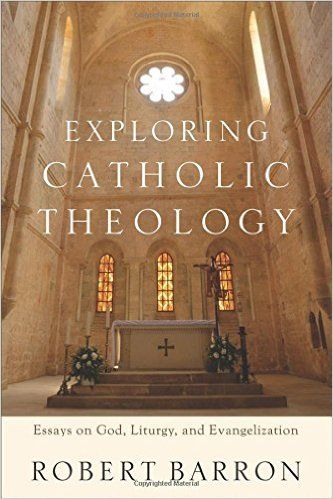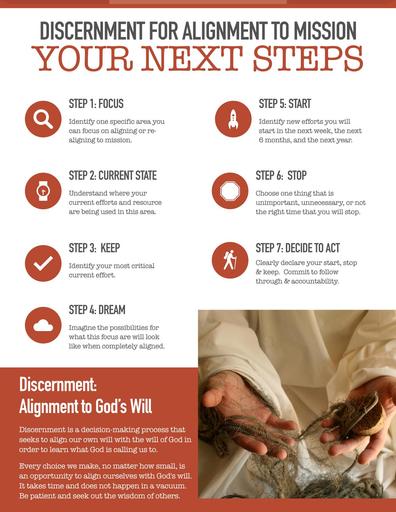The Making Disciples Today Blog has reflections to help you grow in your journey of missionary discipleship, reviews on recommended Catholic evangelization resources, and practical insight on how to evangelize in your daily life.
- Details
- Written by: Jean Buffington
Exploring Catholic Theology Essays on God, Liturgy and Evangelization
by Bishop-Elect Robert Barron
I love Bishop-Elect Barron and always find him to be a wonderful source of inspiration. This book does not disappoint, but it is definitely a "slow read."
- Details
- Written by: Jean Buffington

On June 17, 2015 a young man entered Emanuel AME Church in Charleston and quietly joined a group of people gathered for their weekly prayer meeting. He was a stranger to them but, never the less, they welcomed him without reservation. He prayed with them for several minutes and then quietly stood up and methodically shot all but one of them, leaving nine people dead. The tenth victims life was spared so the she could, in his words, be a witness to “what happened here.”
- Details
- Written by: Fr. Larry Rice

There are few events in life that are as steeped in tradition as a wedding. And the traditions surrounding weddings come to us through our families, our friends, our culture, and our religious traditions. But every religious tradition handles weddings differently, and some of the things that people expect to see and hear, are often not part of the Catholic way of celebrating weddings.
Here are four things you won't hear at a Catholic wedding:
1. "Who Gives This Woman?"
For example, in some traditions, at the conclusion of the procession into the church, the presiding minister may ask,“Who gives this woman to be married?” And the father of the bride will be expected to respond that he, or he and his wife, do.
At Catholic weddings, it’s presumed that the bride—and the groom for that matter—give themselves to each other.
2. "Speak Now, Or Forever Hold Your Peace"
If you’ve ever seen a wedding on a television series, you’re probably familiar with the dramatic possibilities that arise when the minister asks, “If anyone knows any reason why these two should not be wed, let him speak now, or forever hold his peace.” Well, we Catholics don’t do that.
In many places, notices of upcoming weddings are published, allowing anyone with objections to come forward before the couple gets to the altar.
3. "With This Ring, I Thee Wed"
Another touching moment in most TV weddings is the phrase, “With this ring, I thee wed.”
For us Catholics, the moment of the marriage is the exchange of consent, and the speaking of the vows. The ring is a symbol of the union that has already taken place. We bless wedding rings, and they are exchanged with the phrase,
“Take this ring as a sign of my love and fidelity, in the name of the Father, and of the Son, and of the Holy Spirit.”
4. "I Now Pronounce You Man and Wife"
Another thing we don’t say at Catholic weddings is “I now pronounce you man and wife.” We believe that the couple becomes husband and wife not because the minister declares them to be such, but because they have given their consent and made their vows
to each other. The function of the priest or deacon is to preside and witness these vows, not to make the marriage happen.
Through all of the ceremony, the emphasis is on what the bride and groom do, and not on anyone else. This celebration of love and unity mirrors the love of God for his people, and should inspire all of us to be more loving, more committed people.
Fr. Rice is Vocations Director for the Paulist Fathers.
Copyright © 2015, United States Conference of Catholic Bishops, Washington, DC. All rights reserved. Reprinted with Permission
- Details
- Written by: Steve Anderson
I decided to listen to both of these talks by Dr. Brandt Pitre as I was exploring resources to help my son prepare for his upcoming wedding.
Jesus the Bridegroom:
The Greatest Love Story Ever Told
In Jesus the Bridegroom, Dr. Pitre’s down to earth speaking style really helps explain the covenant relationship between God and his people and how that is reflected between a bride and a groom. The alert listener will come to understand why the Church values Holy Matrimony the way it does
To be sure, most Christians are familiar with the apostle Paul’s teaching that Christ is the 'Bridegroom’ and the Church is the 'Bride’. But what does this really mean? And what would ever possess Paul to compare the death of Christ to the love of a husband for his wife? If you would have been at the Crucifixion, with Jesus hanging there dying, is that how you would have described it? How could a first-century Jew like Paul, who knew how brutal Roman crucifixions were, have ever compared the execution of Jesus to a wedding? And why does he refer to this as the “great mystery” (Ephesians 5:32)?



